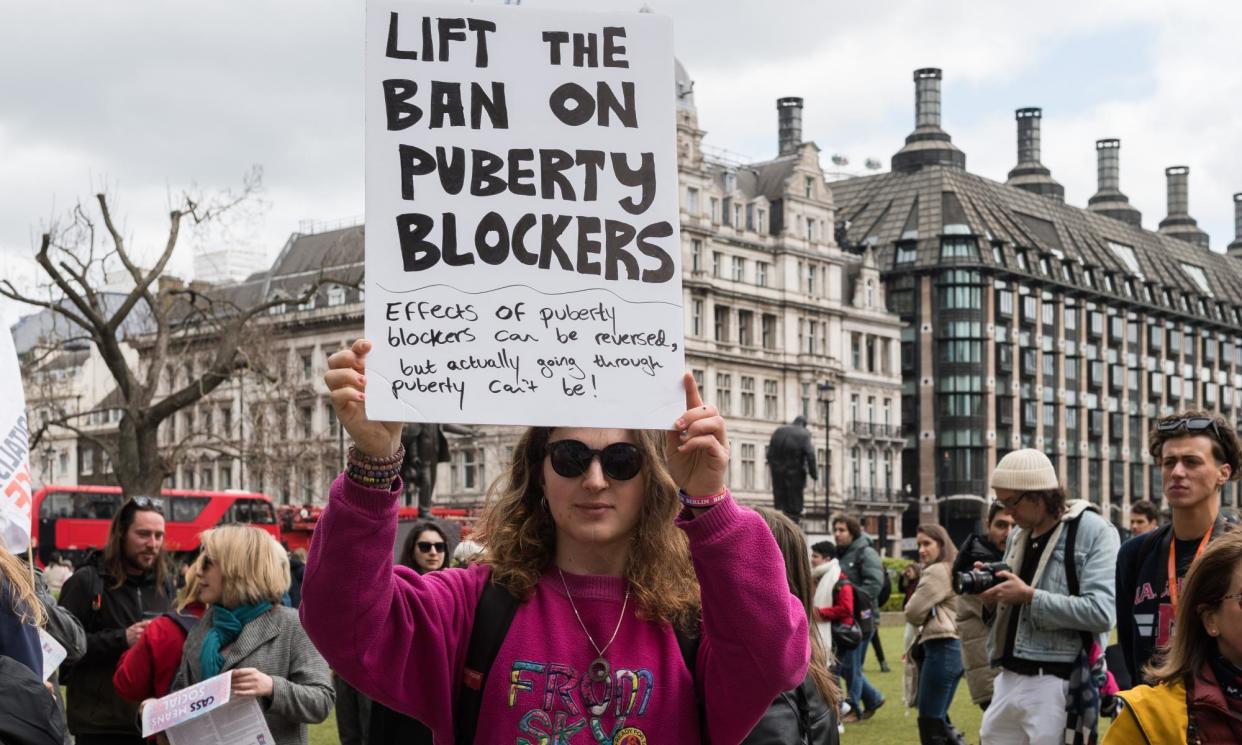Campaigners mount legal challenge against puberty blockers ban in Britain

The UK government has until Friday to respond to a letter from campaigners who are mounting a legal challenge against the ban on puberty blockers for young people that came into force this week.
The non-profit legal organisation The Good Law Project and the transgender advocacy group TransActual have instructed senior lawyers to challenge a ban on the drugs, which campaigners say could lead to the criminalisation of healthcare providers.
The ban on prescribing the drugs, with the threat of up to two years’ imprisonment, followed the findings of the Cass review into the provision of NHS services for transgender young people and children questioning their gender identity.
Though it did not call for a ban, the report criticised the use of puberty blockers – medication used to delay the physical signs of puberty, such as the growth of breasts or facial hair – for people under the age of 18.
The drugs were used by about 16% of patients at the now closed adolescent Gender Identity Development Service (Gids) to “buy time” to allow them to weigh up whether they were transgender without taking permanent sex hormones.
On 30 May, before the dissolution of parliament, the health secretary, Victoria Atkins, put in place an emergency ban on prescribing the drugs in England, Wales and Scotland.
The campaigners say this bypassed the normal requirement for consulting a statutory committee to protect the public interest and that introducing the ban before parliament was dissolved meant it could not be scrutinised.
They have instructed Russell-Cooke solicitors and the senior barristers David Lock KC, Jason Coppel KC and Rob Harland to advise on a legal challenge, which will initially lead to the disclosure of the processes the Department of Health and Social Care went through before introducing the order.
Coppel recently successfully defended Michaela community school in north London against a high court challenge by a Muslim pupil over its ban on “prayer rituals” in school hours.
Should a judicial review be brought forward, this will seek to quash the puberty blocker ban and all regulations associated with it, the campaigners said.
Related: Puberty blockers: what are they and what are the concerns about them?
Chay Brown, the director of healthcare at TransActual, said: “The consequences of this order are draconian and targeted. This ban risks the safety and wellbeing of young trans people, potentially criminalises healthcare providers and makes the UK one of the most restrictive places in the world for trans healthcare, all without having gone through the proper processes required by the law under which the ban was introduced.”
The Good Law Project director, Jo Maugham, said: “There is no proper basis to rush into law a criminalisation of puberty blockers that the government’s chosen expert did not recommend and which leaves Great Britain with the most restrictive regime in the world.”
The Department of Health has been contacted for a response.


